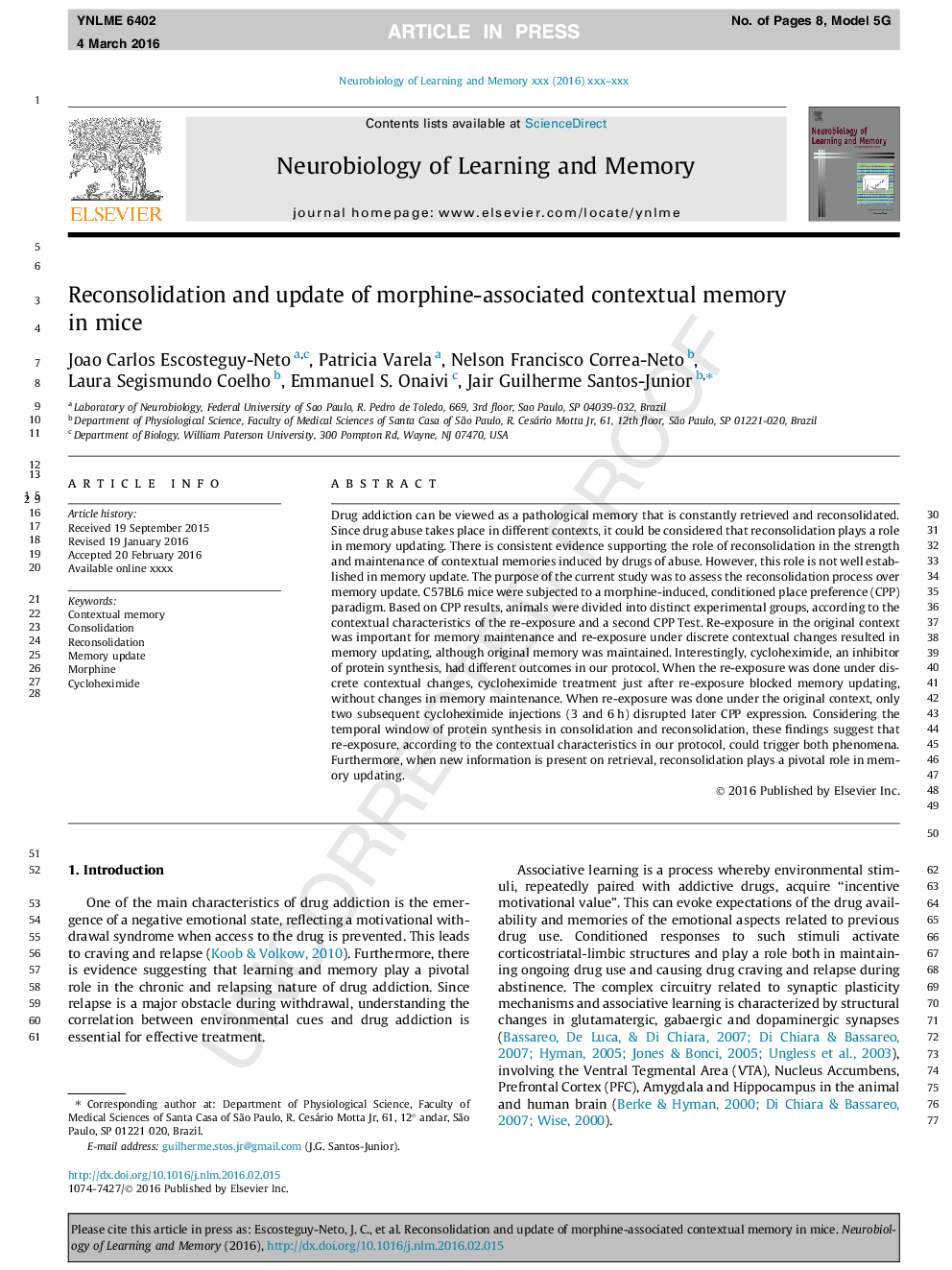| Article ID | Journal | Published Year | Pages | File Type |
|---|---|---|---|---|
| 7299204 | Neurobiology of Learning and Memory | 2016 | 8 Pages |
Abstract
Drug addiction can be viewed as a pathological memory that is constantly retrieved and reconsolidated. Since drug abuse takes place in different contexts, it could be considered that reconsolidation plays a role in memory updating. There is consistent evidence supporting the role of reconsolidation in the strength and maintenance of contextual memories induced by drugs of abuse. However, this role is not well established in memory update. The purpose of the current study was to assess the reconsolidation process over memory update. C57BL6 mice were subjected to a morphine-induced, conditioned place preference (CPP) paradigm. Based on CPP results, animals were divided into distinct experimental groups, according to the contextual characteristics of the re-exposure and a second CPP Test. Re-exposure in the original context was important for memory maintenance and re-exposure under discrete contextual changes resulted in memory updating, although original memory was maintained. Interestingly, cycloheximide, an inhibitor of protein synthesis, had different outcomes in our protocol. When the re-exposure was done under discrete contextual changes, cycloheximide treatment just after re-exposure blocked memory updating, without changes in memory maintenance. When re-exposure was done under the original context, only two subsequent cycloheximide injections (3 and 6Â h) disrupted later CPP expression. Considering the temporal window of protein synthesis in consolidation and reconsolidation, these findings suggest that re-exposure, according to the contextual characteristics in our protocol, could trigger both phenomena. Furthermore, when new information is present on retrieval, reconsolidation plays a pivotal role in memory updating.
Related Topics
Life Sciences
Neuroscience
Behavioral Neuroscience
Authors
Joao Carlos Escosteguy-Neto, Patricia Varela, Nelson Francisco Correa-Neto, Laura Segismundo Coelho, Emmanuel S. Onaivi, Jair Guilherme Santos-Junior,
